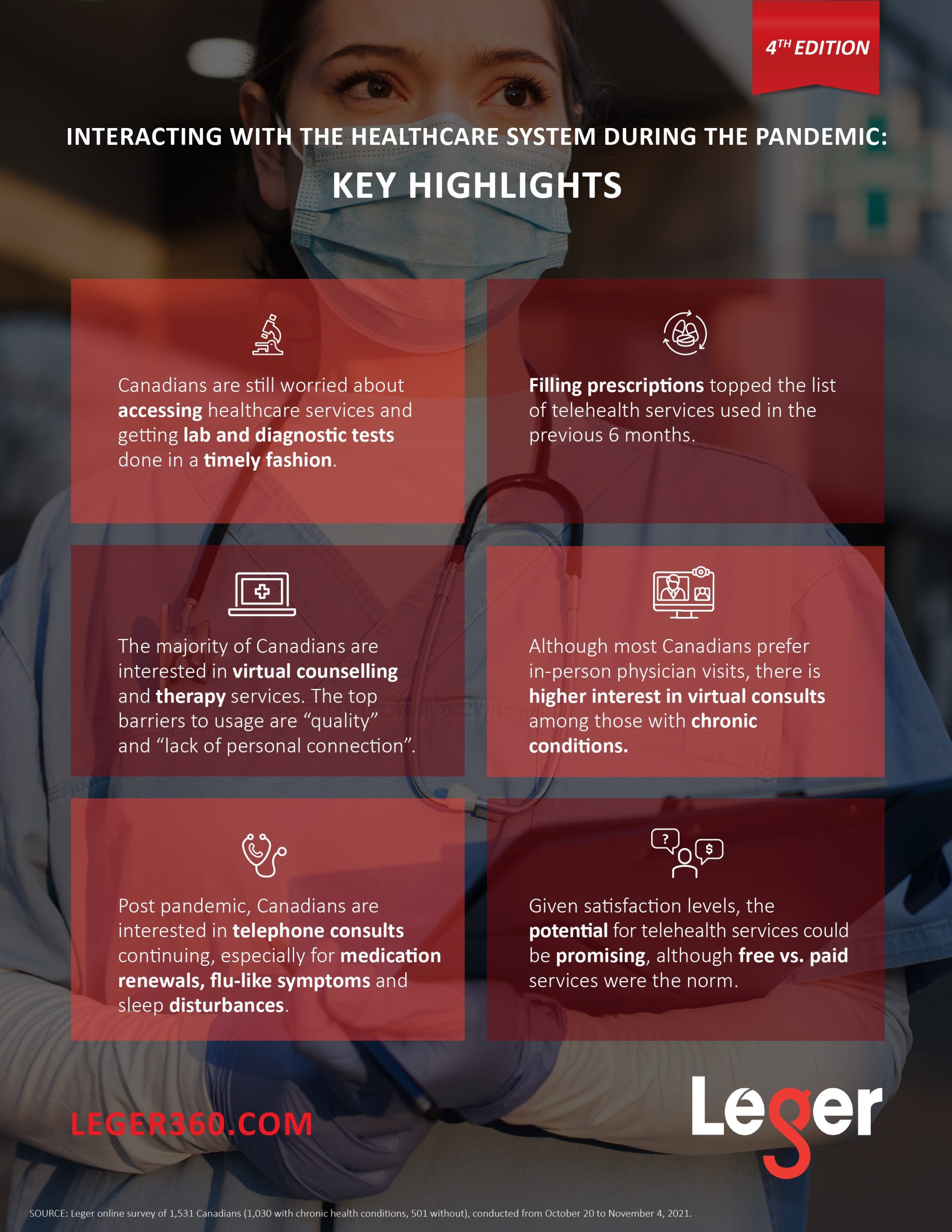OUR SPECIALIZED STUDY REFLECTS HOW THE COVID-19 PANDEMIC HAS DISRUPTED AND IS CONTINUING TO DISRUPT THE HEALTHCARE SYSTEM.
Leger has been tracking perspectives on interacting with the healthcare system during the pandemic from the beginning. We are now presenting our 4th wave of this study to understand how Canadians, particularly those with chronic conditions, are faring as they navigate the healthcare system.
“The COVID-19 pandemic has accelerated the adoption of digital health technologies across Canada. Although there is a gap in terms of desired versus actual usage due to issues with access among certain populations and concerns with the quality of virtual care compared to in-person, Canadians would like to see an expansion of the use of digital health technologies across different healthcare sectors. The message coming clearly from this study is that even after the COVID-19 pandemic is over, virtual care is here to stay,” noted Sana Siddiqui, Vice-President, Healthcare, Leger.
Some of the topics that the study explores include:
- usage of telehealth services (free vs paid services, outcome, level of satisfaction, etc.)
- virtual counselling services (usage, areas of opportunity and barriers to use)
- interactions with GPs/specialists/pharmacists (modality, preferences, satisfaction and outcomes)
- types of healthcare services used (dental, substance use, physiotherapy, etc. and interaction modality)
- identification of concerns regarding medical care (including lab and diagnostic tests)
- level of interest in various types of electronic communication with HCPs post pandemic
- and more
Key Highlights: Interacting with the Healthcare System During the Pandemic: 4th Edition
Some of the key highlights of the study include:
- Medical appointments are still being impacted by COVID-19, although to a lesser extent than previously. Appointments continue to be cancelled or postponed by either the patient or the HCP.
- Canadians are still worried about accessing healthcare services and getting lab and diagnostic tests done in a timely fashion.
- Filling prescriptions topped the list of telehealth services used in the previous 6 months.
- Given satisfaction levels, the potential for telehealth services could be promising, although free vs. paid services were the norm.
- The majority of Canadians are interested in virtual counselling and therapy services. The top barriers to usage are “quality” and “lack of personal connection”.
- Although in-person physician visits are more commonplace this wave, telephone consults are still frequent.
- Although most Canadians prefer in-person physician visits, there is higher interest in virtual consults among those with chronic conditions.
- Post pandemic, Canadians are interested in telephone consults continuing, especially for medication renewals, flu-like symptoms and sleep disturbances.
The full report for the study also tracks changes in Canadians’ perceptions with respect to interacting with the healthcare system during the pandemic over time.
Survey Methodology
- Web survey of 1,531 Canadians, including 1,030 with chronic health conditions and 501 without any chronic health conditions.
- The survey was available in English and French.
- Data collection took place from October 20th to November 4th, 2021.



